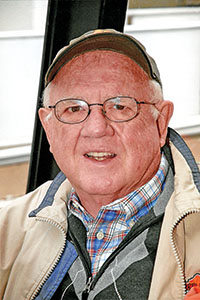Sometimes farriers tend to focus so much on their clients’ footcare problems that they forget to look after themselves. If you’ve ever dealt with burnout, frustration, financial difficulty, feeling overwhelmed, not having enough time to do things, having a limited personal life or a poor quality of life, you know what I’m talking about.
Making the matter even worse is working in a solo practice as most farriers do, says Nancy Loving, an equine veterinarian in Boulder, Colo. Back in December, she urged attendees at the annual meeting of the American Association of Equine Practitioners to change their lifestyles and quit working 60- to 90-hour weeks.
Like many horseshoers, equine vets often think they must be available at all hours to meet the needs of their clients
According to Loving, the key is setting limits and sticking with them.
“Early on, I almost made the mistake of providing after-hour services to clients who had daytime obligations,” she says. “However, I have found that clients concede to rearranging their schedules if it is firmly and kindly made clear that routine appointments are only scheduled for times within regular business hours. And this does not include weekends or evenings.”
Setting limits and boundaries has not affected her ability to continue a comfortable working relationship with clients. The result is that time is now allocated between the needs of clients and her own business and personal/family life.
Learn To Say “No”
Loving maintains the trick for success in learning to gracefully say “no” is being able to provide a meaningful alternative.
“I have come to view the times when I say ‘no’ as an interaction with an opportunity to educate clients,” she says. “Each opportunity can be liberating by facilitating more balance between work and family or play time.” Her alternatives include offering informational health handouts, phone numbers of rescue units and contact numbers for vets and others who provide emergency service.
When she travels to educational events, Loving doesn’t believe a conference should end with a mad dash back to a busy practice. So she tries to give herself an extra day off for area sightseeing before returning to work.
“My clients rarely notice that I’ve been gone one more day and that extra day reassures me that my own priorities are in the right place,” she says. “When I don’t take the extra day off, it serves as an early warning system that I need to take a hard look at my priorities.”
Attract Better Clients
By setting boundaries and showing respect for your talents, she says you’ll attract clients that respect you and fully understand your needs.
“Clients will pay a reasonable fee for enhanced quality of service, allowing you to expand your education and skills to provide even better service,” she says.
“In this way, you give yourself the best chance to achieve improved professional gratification and knowledge along with having more available time and appropriate compensation.”








Post a comment
Report Abusive Comment